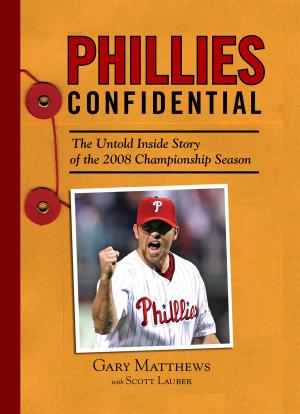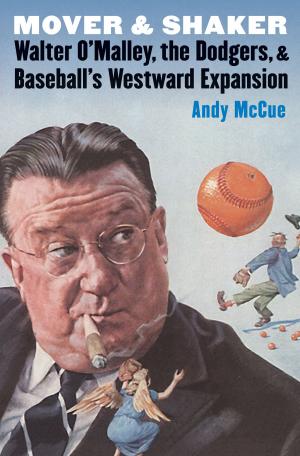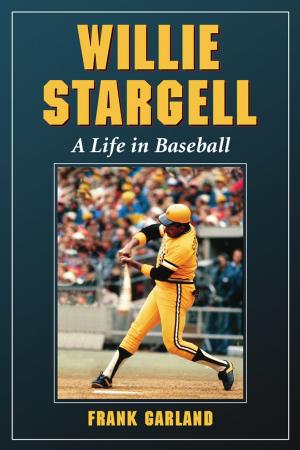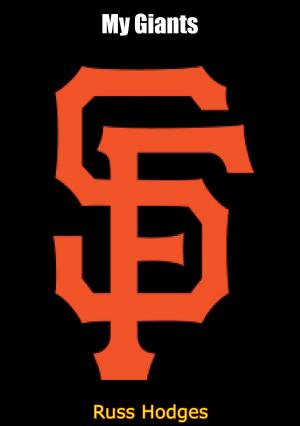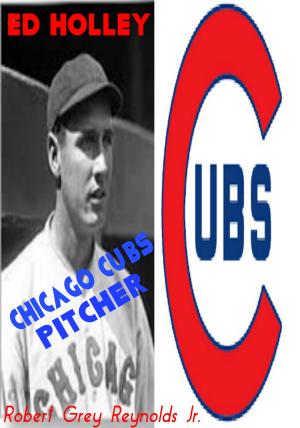Relentless Pursuit: Pete Rose's Self-Serving Quest for the All-Time Hits Record - 1983 - 1986
Nonfiction, Sports, Baseball| Author: | Kerry Keene | ISBN: | 9781301177608 |
| Publisher: | Kerry Keene | Publication: | April 25, 2013 |
| Imprint: | Smashwords Edition | Language: | English |
| Author: | Kerry Keene |
| ISBN: | 9781301177608 |
| Publisher: | Kerry Keene |
| Publication: | April 25, 2013 |
| Imprint: | Smashwords Edition |
| Language: | English |
On September 11, 1985, baseball legend Pete Rose entered his name into the record books by passing Ty Cobb's longstanding record for most hits in a career. Ever since, Rose has embraced the title of "Hit King", and it had been apparent to many that it was a goal on which he had fixated for many years.
By the early 1980's, after he had played major league baseball for two decades, Rose's hitting skills had begun to decline noticeably. In his early forties at the time, he was going through a natural decline, and was simply not capable of collecting hits to anywhere near the degree he once could. When he was unceremoniously released by the Philadelphia Phillies in October of 1983, he found himself at the age of forty-two, shopping his faded skills around to any team that would have him. Just 201 hits shy of Cobb's record, he needed to convince a team that he could still supply value on the field, a winning attitude, and help to put fans in the seats.
After being passed over by several teams, he was finally signed by the Montreal Expos in late January of 1984, less than a month before spring training was scheduled to begin. Unfortunately for Rose, he did very little to justify Montreal's confidence, and it appeared that his decline as a player was continuing. By mid-season, Rose was spending more time on the bench, and knew that at that rate, his quest for the all-time hits record was coming to a grinding halt.
He put his agent to work to find another team that would take him, and discussions began that would bring Rose back to his old team, the Cincinnati Reds. Rose had grown up in that city, had spent the first sixteen years of his career there, and was still a beloved figure. The Reds at that time were struggling badly, and desperately needed something to reverse their fortunes. Initially, the team was willing to bring Rose on as a manager, as they weren't confident that he could still hit at a quality level. After several discussions Rose convinced the team that he could still perform, and would take on the role of manager while continuing to play. He specified that he would only play occasionally, and that he would never put his pursuit of the Hits record above what was best for the team.
The city of Cincinnati was thrilled to have Rose back with the team, and he immediately took advantage of the situation by putting himself in the lineup far more than he had indicated he would.
By the following season, 1985, as he was inching closer to passing the record, the situation became more obvious. Rose had long stretches where he was an extremely ineffective hitter, yet he continued to place himself in the lineup, ignoring several potentially better options. A strong case is made in "Relentless Pursuit" that Rose may well have cost his team a spot in the 1985 playoffs due to his insistence on continuing to play and pursue the record. As many times as Rose would tell reporters that he would not place his personal goal above what the team was trying to achieve, he did so repeatedly. He was so admired by Reds' fans in the region, he simply felt he could do what he pleased - and upper management of the team was complicit.
While Rose did ultimately break the record late in the 1985 season, it was unfathomable that the team allowed him to come back and continue to play in 1986. His hitting skills had declined so noticeably, he was among the very least effective hitters in the game - yet he was able to continue adding to the record.
Several players, managers, and executives who were close to Rose during this period were interviewed for this project, and shed light on their feelings as to how Rose went about his businees in the game at that time.
It surely has the potential for baseball aficionados to view Pete Rose and his all-time hits record in a very different manner.
On September 11, 1985, baseball legend Pete Rose entered his name into the record books by passing Ty Cobb's longstanding record for most hits in a career. Ever since, Rose has embraced the title of "Hit King", and it had been apparent to many that it was a goal on which he had fixated for many years.
By the early 1980's, after he had played major league baseball for two decades, Rose's hitting skills had begun to decline noticeably. In his early forties at the time, he was going through a natural decline, and was simply not capable of collecting hits to anywhere near the degree he once could. When he was unceremoniously released by the Philadelphia Phillies in October of 1983, he found himself at the age of forty-two, shopping his faded skills around to any team that would have him. Just 201 hits shy of Cobb's record, he needed to convince a team that he could still supply value on the field, a winning attitude, and help to put fans in the seats.
After being passed over by several teams, he was finally signed by the Montreal Expos in late January of 1984, less than a month before spring training was scheduled to begin. Unfortunately for Rose, he did very little to justify Montreal's confidence, and it appeared that his decline as a player was continuing. By mid-season, Rose was spending more time on the bench, and knew that at that rate, his quest for the all-time hits record was coming to a grinding halt.
He put his agent to work to find another team that would take him, and discussions began that would bring Rose back to his old team, the Cincinnati Reds. Rose had grown up in that city, had spent the first sixteen years of his career there, and was still a beloved figure. The Reds at that time were struggling badly, and desperately needed something to reverse their fortunes. Initially, the team was willing to bring Rose on as a manager, as they weren't confident that he could still hit at a quality level. After several discussions Rose convinced the team that he could still perform, and would take on the role of manager while continuing to play. He specified that he would only play occasionally, and that he would never put his pursuit of the Hits record above what was best for the team.
The city of Cincinnati was thrilled to have Rose back with the team, and he immediately took advantage of the situation by putting himself in the lineup far more than he had indicated he would.
By the following season, 1985, as he was inching closer to passing the record, the situation became more obvious. Rose had long stretches where he was an extremely ineffective hitter, yet he continued to place himself in the lineup, ignoring several potentially better options. A strong case is made in "Relentless Pursuit" that Rose may well have cost his team a spot in the 1985 playoffs due to his insistence on continuing to play and pursue the record. As many times as Rose would tell reporters that he would not place his personal goal above what the team was trying to achieve, he did so repeatedly. He was so admired by Reds' fans in the region, he simply felt he could do what he pleased - and upper management of the team was complicit.
While Rose did ultimately break the record late in the 1985 season, it was unfathomable that the team allowed him to come back and continue to play in 1986. His hitting skills had declined so noticeably, he was among the very least effective hitters in the game - yet he was able to continue adding to the record.
Several players, managers, and executives who were close to Rose during this period were interviewed for this project, and shed light on their feelings as to how Rose went about his businees in the game at that time.
It surely has the potential for baseball aficionados to view Pete Rose and his all-time hits record in a very different manner.



